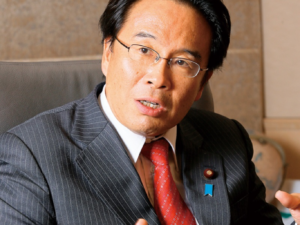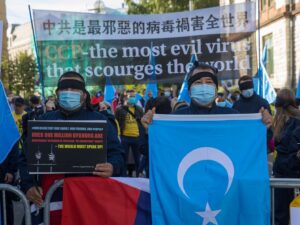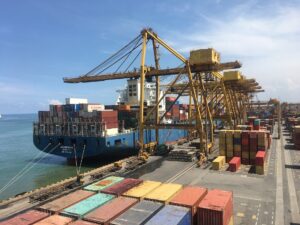The Reality of China’s Unofficial Police
On April 17, the U.S. Department of Justice announced the arrest of two men who have been running a Chinese regional hometown association in New York City, who were involved in the Chinese “unofficial police” that occupied a building in New York City’s Chinatown.
The two arrested men were said to have specialized in seeking out and intimidating dissident Chinese.
The U.S. Department of Justice also announced the indictment of 34 Public Security Bureau officials for operating an information operations organization that created large numbers of fake accounts on social media platforms to spread disinformation and harassment.
Unofficial police bases in China have been established in 102 locations in 53 Western countries, including Japan, in order for Chinese authorities to monitor or force overseas Chinese nationals to return home. Disguised as ordinary organizations, companies, or Chinese restaurants, they carry out their activities as ordinary companies or organizations.
They have been forcibly returning Chinese nationals who have shown criticism of the regime or anti-Chinese ideology to Japan, and intimidating and harassing these Chinese nationals and their families in China.
What is the Japanese base of the unofficial Chinese police?
According to the Ministry of Foreign Affairs and other sources, there are two unofficial police bases in Japan.
The first is in Akihabara, Tokyo, and the second is in Fukuoka.
The one in Akihabara, Tokyo, is located in a building with a top floor that houses an incorporated association with the name of Fujian Province, China.
The Fukuoka location is said to have been established by the Public Security Bureau of Nantong City, Jiangsu Province, and is occupied by a general corporation, the former representative of which is an official of the People’s Liberation Army.
And it is presumed that there are other bases in Ginza, Nagoya, and Osaka in addition to the above-mentioned bases.
The aforementioned man arrested in the U.S. operates a Chinese regional hometown association, and the commonality between the unofficial police and hometown associations, economic organizations, etc., including the Japanese bases, can be mentioned as a common factor.
It is believed that he is carrying out the mission of the unofficial police by using the community within the Chinese community abroad through hometown and hometown associations to gather information from the Chinese community abroad by all means, including informing on them, and identifying and monitoring those who have expressed anti-Chinese ideology or criticism of the regime.
In some cases, informal police duties are assigned on a personal basis, and it is possible that only a small number of people within their organizations are aware of informal police duties. In other words, they may be working behind the backs of well-meaning people and organizations.
This method of using people of good will as a cover is common to China’s Thousand Grains of Sand Strategy (). (The Thousand Grains of Sand Strategy: A strategy to collect information, however fragmentary, not through typical espionage activities as in Russia, but rather through human sea tactics, using a wide variety of channels, including business people, foreign students, and researchers with both bad and good intentions, as if they were gathering sand on a sandy beach.)
Dealing with Informal Police in Japan
So, is it possible to deal with informal police in Japan?
Japanese investigative agencies cannot make arrests without the fact of a crime. Needless to say, the legal basis for such arrests is based on existing laws and regulations such as the Penal Code.
And, to be honest, there is no way to deal with China’s current practice of using well-meaning people as a cover.
The Chinese authorities should not be allowed to continue their arrogant ways unchecked. An anti-spying law should be considered.
Written by Yu Inamura, President of the Japan Counter Intelligence Association












